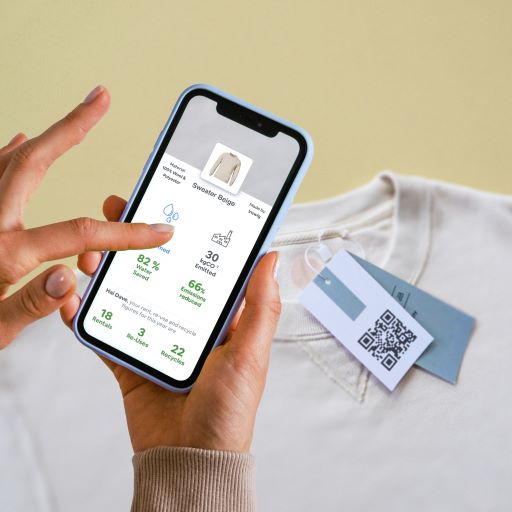
TrusTrace, a global SaaS company with a platform for product traceability and supply chain transparency said Adidas is one of the first companies to adopt the solution.
Sweden based TrusTrace says the solution covers the broad spectrum of requirements for material compliance including documenting the percentage of certified vs. non-certified material content, supporting different chain of custody models, and covering single component products to multi-component products, It thus serves as a single source of information that bolsters brand confidence in their compliance journey and supports their own commitments to move to more sustainable portfolios.
Shameek Ghosh, CEO of TrusTrace said: “In the midst of global greenwashing and challenges with unsubstantiated claims, brands and regulators are moving quickly to instil confidence among consumers that products are, indeed, as sustainable as they claim to be. Brands that want to establish near real-time traceability at the lot level by mapping the movement of raw materials to finished goods – and automatically calculate the sustainability metrics of those goods – now have a proven solution in TrusTrace Certified Material Compliance.
“By linking all purchase orders to production steps, certificates, supplier declarations and quality reports on the TrusTrace platform, TrusTrace Certified Material Compliance helps brands manage risk and compliance and allows them to prove sustainability claims with confidence.”
TrusTrace Certified Material Compliance gives brands visibility into product sustainability metrics, ensuring compliance with standards and regulations, and enabling streamlined decision-making and tighter integration with suppliers worldwide. The solution directly addresses emerging industry methodologies and pending government regulations that will require brands to base sustainability claims on verifiable and precise data.
Near real-time traceability allows brands to capture data from supply chain transactions as products and materials move through the value chain, meaning that finished goods have traceability information already associated with them when they arrive at market, allowing brands to easily tell the story of their products’ origins and material integrity to consumers, retailers, and regulators.
The solution can also help identify material waste in the supply chain by intelligently calculating discrepancies between inputs and outputs, thereby supporting greater efficiencies in production while keeping waste out of landfills or otherwise harming sustainability efforts.
Global sports giant Adidas is one of the first large companies to adopt Certified Material Compliance, TrusTrace says. Adidas provided early input on the product’s development, focusing on a scalable, digital solution integrating seamlessly with enterprise systems like PLM, Purchase Order System and Supplier Management systems to minimise the need for manual intervention.
Being able to track materials in a standardised, digital and scalable way helps Adidas to create more transparency on their sustainability goals, including moving to 100% recycled polyester by 2024, and having 9 out of 10 of their articles featuring a sustainable technology, material, design or manufacturing method by 2025.
“As part of its commitment to sustainability, Adidas has worked with TrusTrace to gain more visibility into our complete supply chain down to the material level,” said Katja Schreiber, senior vice president sustainability at Adidas, in the TrusTrace statement. “The information gleaned from TrusTrace Certified Material Compliance will help us to create even more transparency of our sustainability efforts.”
For the European market, the EU is considering regulatory initiatives such as requiring that claims are backed by common measurement methodologies, France and Denmark have already crafted legislation on documentation requirements for ESG claims.
Amsterdam based Fashion for Good, a platform for sustainable fashion innovation, has focused on bringing the fashion ecosystem together through its innovation platform and acting as a convenor for change, is among many advocates of creating more sin the industry.
“Real-time, fibre forward traceability facilitates industry-wide standardisation of supply chain data, laying the foundation for accurate impact tracking, trustworthy certification and waste stream analytics for fibres, materials and products,” said Katrin Ley, managing director at Fashion for Good.
“All of these factors play a major role in authenticating sustainability claims, enabling the accurate measuring, and ultimately empowering improvements of ESG metrics within the supply chain alongside facilitating the credible flow of impact data to meet legislative requirements at a product level. For brands, supply chain due diligence and sustainability strategies need material traceability, provided by reliable, digital platforms such as TrusTrace, to build data-informed visibility of supply chain journeys to truly transition to more sustainable practices.”



